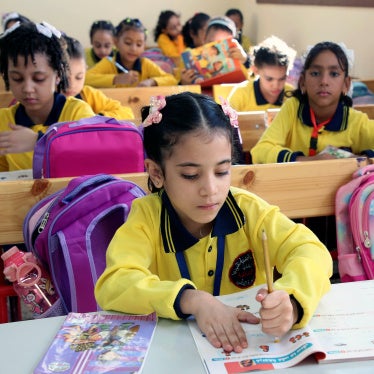Published in SaudiDebate.com
The Saudi Arabian National Society for Human Rights recently published a bill of rights for people infected with HIV. The 16 articles in the bill seek to protect the rights of those living with HIV while advancing the kingdom's response to the epidemic.
However, on closer examination, the bill comprises repressive restrictions that trample upon the rights of people living with HIV and can only hinder an effective response to the epidemic. The bill presents a veneer of protection in one phrase, before taking it away in the next. It violates rights of confidentiality and informed consent and provides for arbitrary detention. It fails to ensure the right to nondiscrimination and equal protection of the law. And ultimately, it represents a strategy against AIDS that is doomed to fail.
For example, Article Two of the bill establishes a national centre for AIDS. But it goes on to dictate that all doctors in the government and the private sector "are required to transfer persons suspected or infected by the virus" to the centre. Instead of building a broad base of care to those infected with HIV, the requirement to transfer all patients to one national centre will serve to erode confidentiality and thereby result in restricting access to treatment by those who fear exposure.
Article Three proclaims that it is prohibited for a physician to disclose the HIV status of a patient without their consent. But if the patient refuses to consent, "a statement shall be taken and raised to the [appropriate] body". A "special medical body" is empowered to examine persons suspected of carrying the virus, even when individuals refuse to consent to the examination.
Article Four obliges the Ministry of Health to screen travelers for HIV when coming from "proven [areas] with an AIDS outbreak" and all foreigners seeking to reside in the kingdom. Such screening is contrary to current international health regulations signed by Saudi Arabia. Furthermore, the 2006 UN International Guidelines on HIV/AIDS and Human Rights state that: "HIV screening of international travelers is discriminatory and cannot be justified by public health concerns."
Article Five empowers a "specialized medical committee" with ordering "those infected with HIV" into quarantine, if necessary under guards provided by the Ministry of Interior. Yet, the routine quarantine of people living with HIV is wholly unjustified on medical grounds or for HIV prevention. The 2006 International Guidelines are clear that "people [should] not be subjected to coercive measures such as isolation, detention or quarantine on the basis of their HIV status. Where the liberty of persons living with HIV is restricted, due process protection should be guaranteed."
Articles Six through Sixteen contain similarly contradictory and counterproductive measures, none of which will lead to greater protection from discrimination or greater respect and dignity for those living with HIV.
The number of people living with HIV in Saudi Arabia is unknown. The government estimates more than 10,000 people have HIV; UNAIDS and WHO say the data is too uncertain to even guess; some physicians have estimated that as many as 80,000 people may be infected.
What is certain is that unless Saudi Arabia guarantees basic protections - access to treatment, confidentiality and informed consent, and freedom from discrimination - the epidemic will get worse as individuals living with HIV, at risk to the disease, or afraid that they may be infected, are driven away from the information and services they need.
Legislation such as the sixteen articles proposed by the Saudi Arabian National Society for Human Rights is based upon the idea that the AIDS epidemic affects "other" people: people whose rights can freely be violated to protect the rest of us. But if there is one thing that has been learned in the twenty-five years since AIDS was discovered it is that if you think of AIDS in terms of "us" and "them", the disease will spread. Only by strengthening human rights for everyone can AIDS be defeated.








